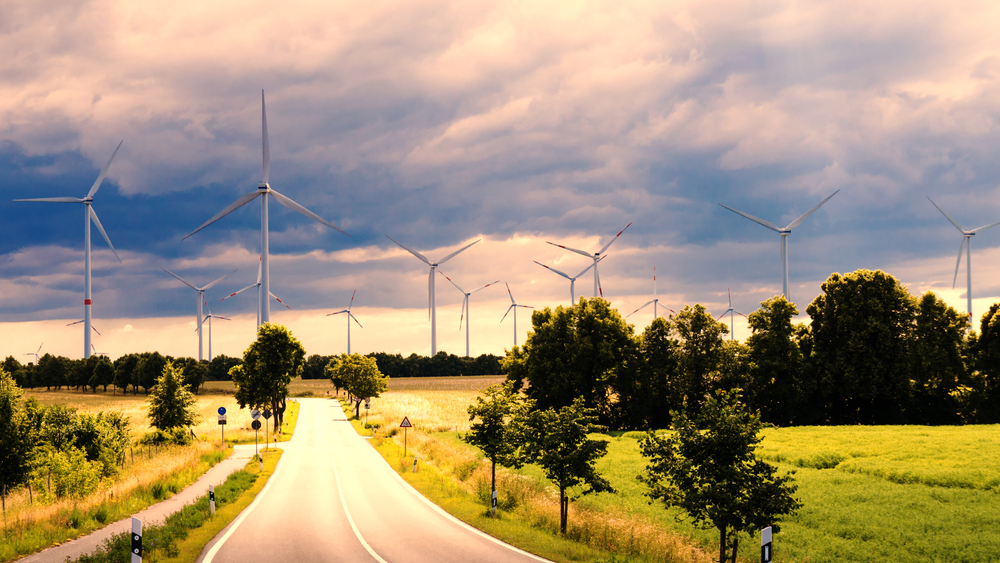Amendments to the act governing extraordinary measures aimed at limiting electricity prices, proposed by the Government at the last possible moment, are harmful and bring serious adverse effects for renewable energy producers. Once again, the proposed solutions have been prepared without any consultations with the industry, and once again will harm renewable energy producers. The proposed attempt to “close the gaps” leads to doubts and may collapse the market for guarantees of origin in Poland. Plainly speaking, most eligible entities will not apply for such certificates at all. And without the certificates, the majority of industrial plants may lose foreign markets. This is a blow to Polish exports, experts representing both the RES sector and energy-intensive industries alert.
In its Position Paper the Polish Wind Energy Association, representing companies from the RES sector, calls for abandoning works on self-amendment to the draft Act Amending the Energy Law and the Renewable Energy Sources Act (UC74), which also amends the Act of 27 October 2022 on Extraordinary Measures to Limit Electricity Prices and Support Certain Customers in 2023. In the opinion of PWEA the amendment is harmful and brings far-reaching adverse effects for renewable energy producers, and consequently for Polish industry taking advantage of the so-called guarantees of origin (a certificate that energy has been produced from renewable sources).
The provision in question modifies the procedure for calculating contribution to the Fund to include revenues from the sale of guarantees of origin and settlements on account of financial instruments, including cPPAs and other contracts.
Guarantees of origin are an important element confirming that consumed electricity has been produced from renewable sources. The incapacity to obtain such a confirmation for many industries will result either in a loss of many foreign markets (which pay attention to carbon footprint of products) or the need to purchase guarantees of origin on foreign markets. This will mean higher prices of such guarantees, translating into lower competitiveness of Polish products in foreign markets. Moreover, the Polish industry will be forced to seek guarantees of origin abroad, resulting in outflow of funds and additional contribution to the development of foreign RES (e.g. in Germany).
The RES industry emphasizes that the self-amendment that introduces yet another adjustment to the price act, is very similar to the previous proposals in that it has not been consulted with entities subject to the solutions in any way. Once again, the solutions will harm renewable energy producers, resulting in worse treatment of such producers.
Experts demonstrate that the attempt to “close the gaps” proposed in the self-amendment may collapse the market for guarantees of origin in Poland, for most eligible entities will not apply for such certificates at all. This will translate into a substantially lower supply of guarantees of origin, and already their volume does not match the demand, which is represented by substantial price growth in the recent years.
“National companies need more and more green electricity, either in the form of RES guarantees of origin, own sources, or through cPPAs. Any regulations that limit the customers’ access to these sources, or contribute to lower supply of green electricity in the system, or entail the risk of bringing RES investments to a halt, are destructive for the Polish economy, which is attempting to rapidly transform towards zero-carbon value chains,” Dominika Taranko, Director, Forum for Climate and Energy, ZPP, said.
In its Position Paper, PWEA also emphasizes that the proposed provisions will harm the newly emerged cPPA market in Poland.
“This is the more incomprehensible, as cPPAs due to their nature contribute to the limitation and stabilisation of electricity prices in the long term — contrary to the price act, which focuses on short-term objectives. The self-amendment in question exposes producers that signed a cPPA to loss of revenues and places such contracts in a worse position than other market-based contracts,” Szymon Kowalski — Vice-President of RE-Source Poland Hub foundation, supporting PPA development in Poland, said.
Industry to Particularly Suffer the Consequences of the Amendment
The threat stemming from the proposed amendments has been also noted by Forum of Electricity and Gas Customers (FOEEiG), representing the entire energy-intensive industry, i.e. the largest industrial fuel and energy customers in Poland. In its opinion filed with the Ministry of Climate, FOEEiG emphasizes that the new scheme for the calculation of contributions will expose some guarantee of origin vendors to a loss. “Calculation of contribution to the Fund on the basis of revenue on sales does not take into account the acquisition cost of such a guarantee. For instance, an electricity vendor that purchased guarantees of origin from a RES electricity producer for 10 PLN/MWh and committed to sell them to an energy-intensive customer for 12 PLN/MWh will be obliged to make a contribution of 11.64 PLN/MWh. Therefore, it will incur a loss of 9.64 PLN/MWh on each guarantee of origin.
The consequence of the energy-intensive customers’ incapacity to obtain guarantees of origin (…) will be the obligation to reimburse received compensations. Such a situation may be ruinous for many industrial customers, already affected by skyrocketing electricity prices,” representatives of the industry write.
They also emphasize the discriminatory nature of the proposed amendments and illegitimate interference with corporate PPAs. The amendment may expose customers to incapacity to hedge the price of electricity purchased prior to regulatory changes, with legitimate expectations of justly accrued rights.
Both Polish Wind Energy Association and Forum of Electricity and Gas Customers call for non-introduction of the self-amendment in its current wording or for adapting the proposed regulations to the actual market situation, taking into account the situation of both renewable energy producers and customers.

